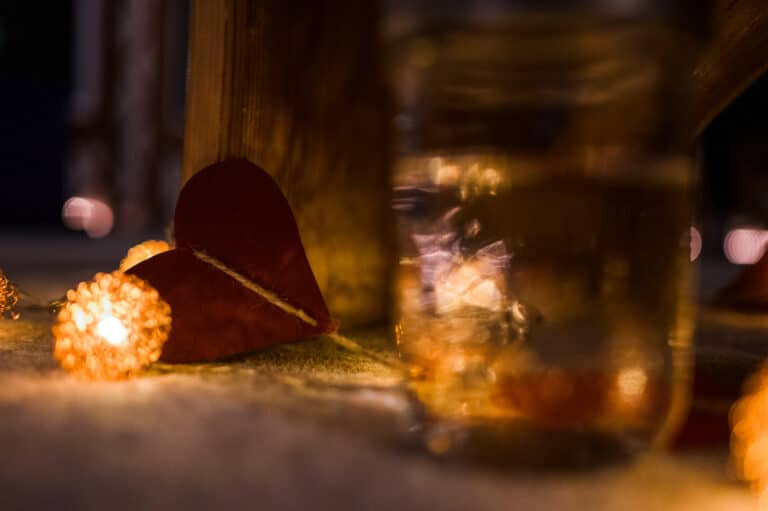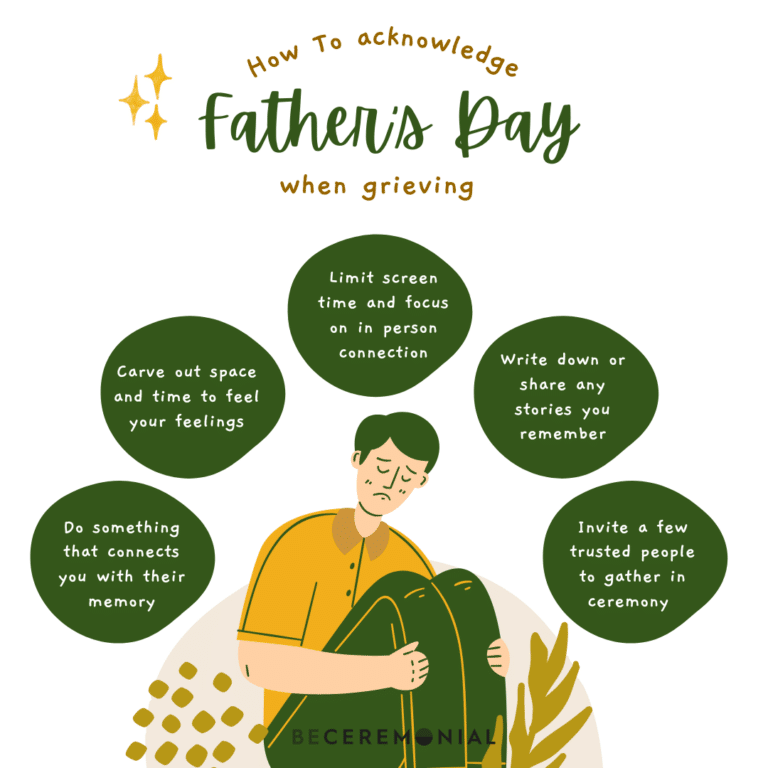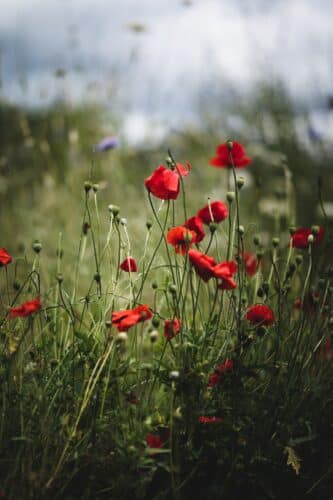
Here in Canada, our country is preparing to pause and reflect for a shared moment of silence during our national Remembrance Day on November 11th.
For many people, the rituals associated with Remembrance Day can be a reminder on the rituals you can draw from as you set out to acknowledge and honour your own anniversary of loss.
Death anniversaries (or a deathaversary) often feel quiet and lonely, as most people aren’t sure what to do (if anything) to mark this significant time. Finding your own ways to acknowledge these difficult moments and days of remembrance can help you find meaning and connection to your grief.
Whether we realize it or not, death anniversaries are part of the grieving process. “Many people say that the days and weeks before the death anniversary are difficult in and of themselves, as they feel tired, groggy, easily aggravated, or out of sorts,” reflects a Canadian funeral home. Despite living in a culture where we are encouraged to get over our grief, the reality is that grieving can’t be contained in a tidy box.
While some cultures have formalized celebrations to honour the dead years after they’ve died, many of us have had to find our own ways to mark the passing of time and the enduring nature of our loss.
Giving space to these feelings instead of trying to suppress them can be an important aspect of our mental and physical health. Bringing focus and intention to the emotions we may be holding, and finding ways to connect with loss can actually help our grief become part of our growth.
Helping people create that safe space has been a mission for our co-founder Megan Sheldon. As an end of life doula and celebrant with Seeking Ceremony, she knows the healing power ceremony and ritual can have, especially during those days of remembrance. “Rituals are important because they offer us structure and meaning, and create a container for our natural emotions.”
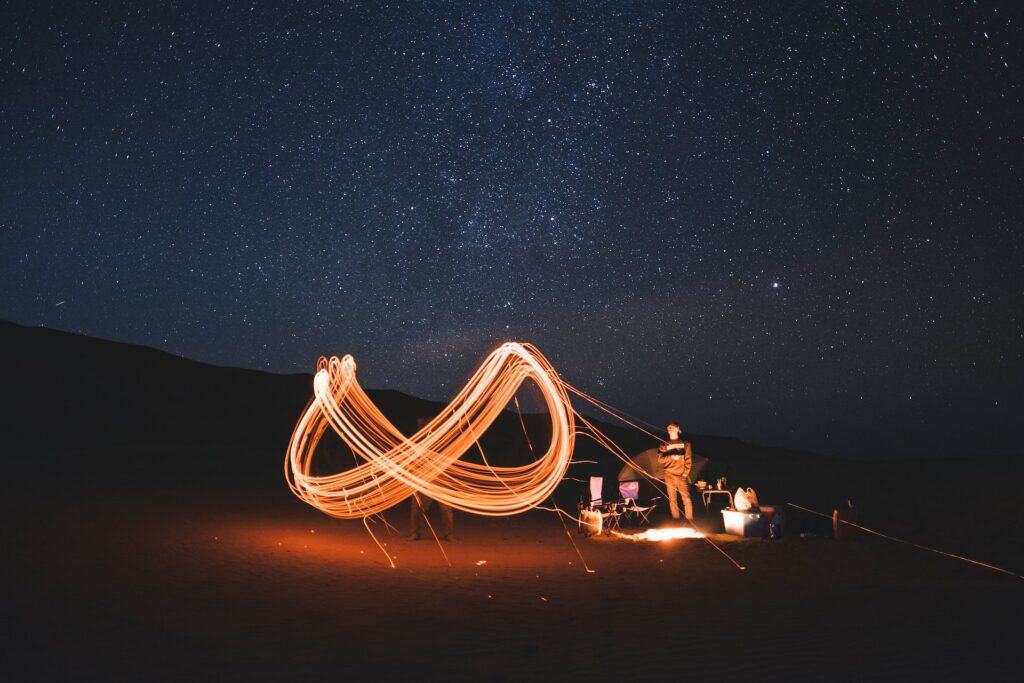
Here are four rituals in our Death Anniversary ceremony that can help you acknowledge a death anniversary or grief season:
- Memory Lane ~ Spend time looking at memory-inducing items, connecting you to the person you lost.
- Lineage Legacy ~ Introduce an ancestral lineage of your choosing to your ceremony space, as well as a piece of their legacy you’re carrying.
- Anniversary Journal ~ Create a journal of memories, stories, and wishes that you can revisit every year to reconnect with your person’s legacy.
- Name Repetition ~ Repeat the name of the person you lost as many days or years as they lived.
Although all anniversaries can be hard, first anniversaries can sometimes be the most challenging. We collaborated with Hope Edelman to create a Death Anniversary Ceremony for the motherless daughters community. This resource has been adapted and shared with the For Grief community as well. It can be something as simple as doing something new for the first time and using this act as way to bring meaning to your grieving process.
Even if you’ve had a difficult relationship with the person who’s died, it’s important to give yourself permission to feel the range of complex emotions, including frustration, anger, and guilt. Although we often think of ceremony as ways to honour the dead, it’s really for the people left behind to help them acknowledge their feelings with intention and awareness.
Ceremonies don’t have to be elaborate, and they don’t require any particular faith. In fact, studies have shown that even when you’re not sure you believe in them, rituals work to help calm and soothe us. They can be private, or they can help people join together in community. Recent research suggests that rituals may be more rational than they appear.
While there’s no right or wrong way to mark private or public remembrance days, denying their impact isn’t helpful. No matter what you decide to do, being intentional about how you can mark this occasion can make it a healthier and more meaningful experience.
Through ceremony we can acknowledge both the brokenness and the urge to mend. We can help our brains and hearts cope with situations that can sometimes feel beyond our control. “We run from grief because loss scared us, yet our hearts reach toward grief because the broken parts want to mend,” says Brene Brown. She goes on to say, “We don’t do ourselves any favors when we rush or simply try to skip over the process of grieving. Even when it is scary, we must follow our hearts and honor our grief.”
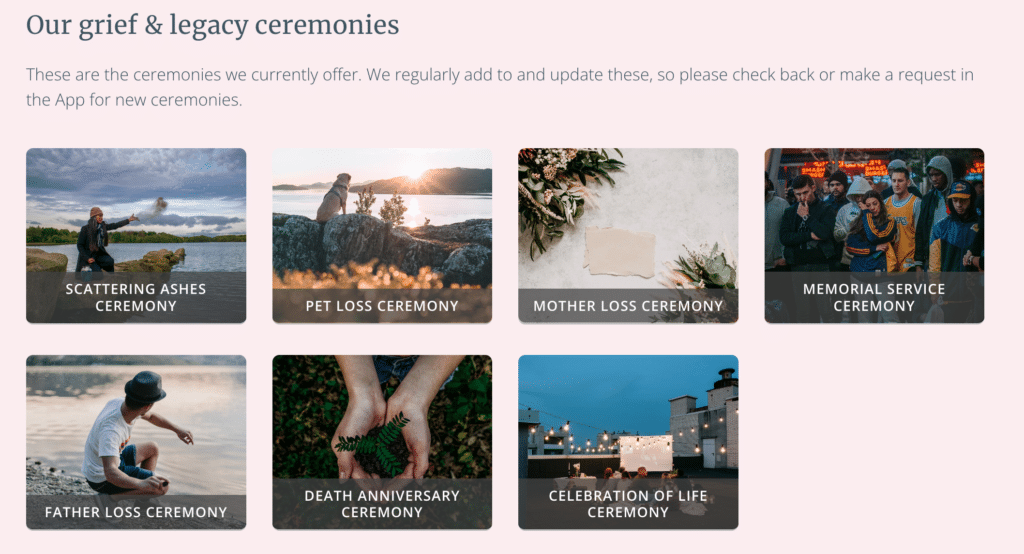
We hope you can find ways to honour your grief during a death anniversary or day of remembrance. Find out more about our Grief & Legacy ceremonies and Death Anniversary ceremony, or consider gifting one to someone you know who is about to embark on their own death anniversary experience.

